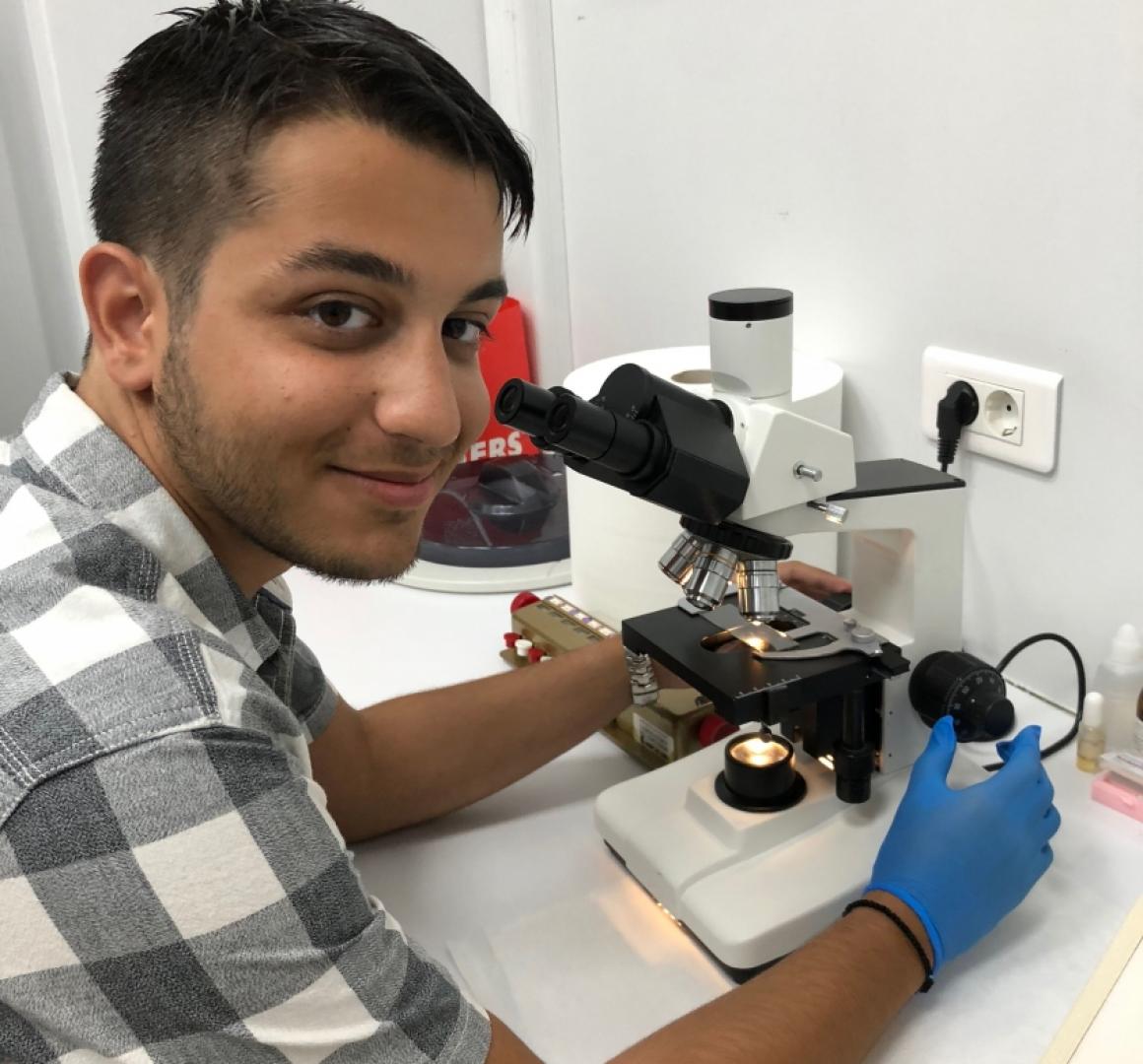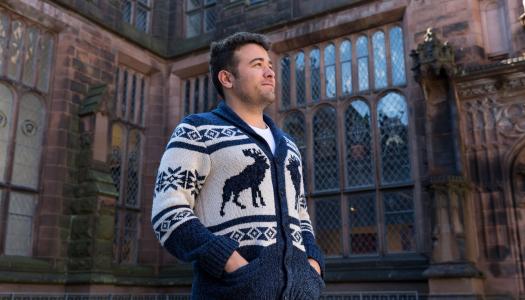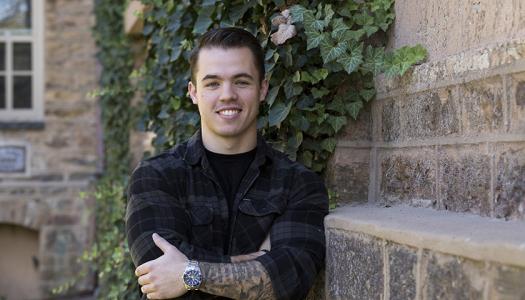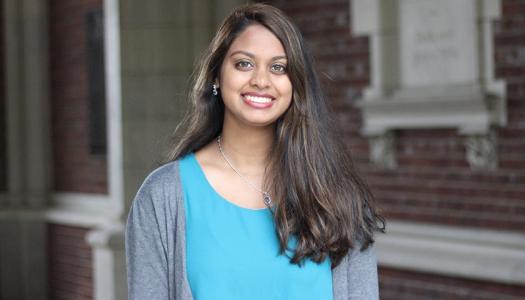Dimitris Ntaras ’21: A Solution That’s Not Watered Down

If you discovered that your drinking water was contaminated, what would you do? Call your elected representative? Protest on social media? Organize a public rally?
Dimitris Ntaras ’21 decided to tackle the issue head-on: he set out to build a workable water filter.
Ntaras was a Greek high-school student in the Athens suburbs when he decided to combat the tainted water supply that plagued parts of his country. “I was sitting around with a group of kids, throwing around ideas for the Google Science Fair,” he says. “So we collaborated with a state-funded research lab, and the filter model we envisioned was cheaper to build and more effective than most filtration systems out there.”
When Ntaras arrived at Princeton last fall as a freshman, his water filter was still more concept than reality. But with encouragement from Professor Martin Johnson ’81 and his Special Topics in Social Entrepreneurship class, plus support from Service Focus and the Office of Undergraduate Research, he spent his summer at Emory University’s Rollins School of Public Health.
His internship and Emory’s critical mass of scholars allowed him to make significant progress toward a marketable product — and to make crucial global connections that will enable him to help populations in greatest need. “Emory School of Public Health has a dedicated committee of faculty who work on water conservation and water filtration,” Ntaras says. “Plus, they have tremendous connections with organizations that are actually on the ground in parts of Africa and other countries that have limited access to clean water.”
His water filter, which is in the prototype stage, is small — about the size of a desktop printer — and most important, it doesn’t require electricity. Users would be able to operate it in their homes by pouring impure water into the top; a crank would rotate the filtering sheets; and a special laboratory-made compound of hydroxyapatite would clean the water and make it safe to drink.
"We’ve made it so it can last up to three or four months for a household of four,” Ntaras says. “And every four months, we give them a new dose of the filtering compound so that they can keep filtering their water on their own.”
Low maintenance was a defining goal for the filter prototype. In Kenya, where droughts have diminished clean water resources and the consumption of untreated water has sparked outbreaks of cholera and other water-borne diseases, at-risk communities can be cautious about outside assistance.
“There can be a lack of confidence because an NGO can go there and present solutions for six months, and then their funding runs out and they are gone,” Ntaras says. “So the most important thing for me was understanding how the focus needs to be on long-lasting solutions.”
Emory professors introduced Ntaras to local organizations in Kenya and other countries that could help activate his product once it is ready. He also sought funding that would enable his young water filtration company AquaCerta to exist long enough to make a difference.
Then Ntaras had a crucial insight: he realized that one of the key ingredients for the filter also presented an opportunity: the synthetic hydroxyapatite that cleans the water is produced from the cartilage and bones of dead animals, things that Western culture considers garbage. If he made the right contacts, AquaCerta wouldn’t have to pay for a crucial and potentially costly component; another outfit would pay them to take the resource off their hands and dispose of it properly.
“That is our plus,” Ntaras says. “We are going to establish ourselves as a company that offers this waste management solution so we can earn enough income to sustain our water filter production activity.
“So what we’re going to be looking at throughout the next year is reaching out to businesses that handle animal carcasses, and establish relationships with them. If we establish these links — between both the people that are going to be giving us the income and the people who are going to expect solutions — then it’s going to become easier for us in processing this idea and making it a reality.”
Ntaras plans to continue work on his filter at the Keller Center this year, is taking an anthropology class on international development projects, and is also participating in a Service Focus cohort that is themed around engineering for sustainable communities. He is clearly enthusiastic and optimistic about his prospects. When it comes to the future of his company, he’s definitely a glass-is-half-full kind of guy.
For information on supporting Service Focus, contact Laurie Russen, senior associate director, fundraising initiatives, at lrussen@princeton.edu or 609.258.5374.


